Assisted dying: Terminally ill man challenges law in England
- Published
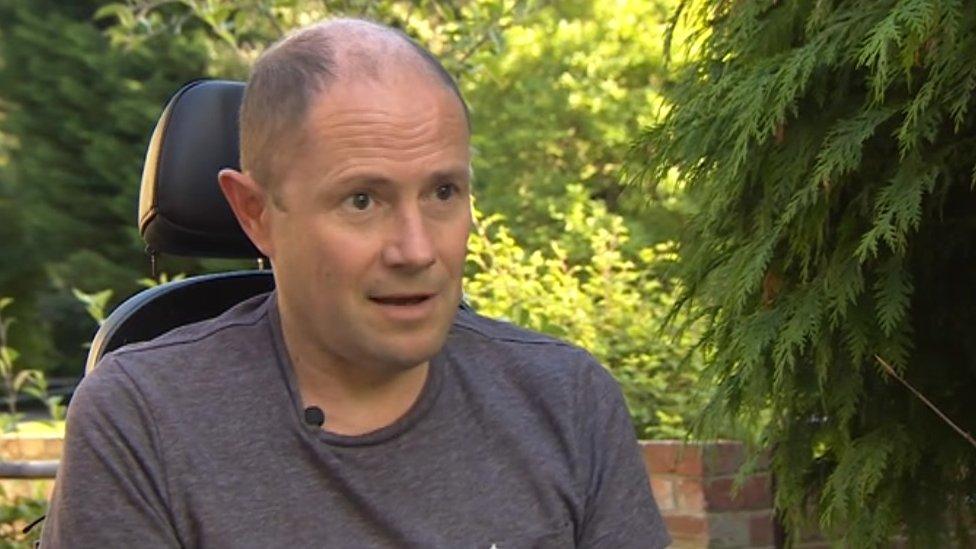
Phil Newby was diagnosed with Motor Neurone Disease in 2014
A terminally ill man says he hopes to end "hopeless futures" by attempting to change the law on assisted dying.
Phil Newby, who has Motor Neurone Disease (MND), has raised more than £40,000 to challenge England's law on assisted dying.
His legal bid would take a different approach to previous UK cases by allowing judges to cross-examine witnesses and evidence.
Opponents say the current law protects "people in a vulnerable position".
Assisted dying is legal in a number of countries, including Australia, Canada, the Netherlands, Switzerland and some parts of the US, and allows people to help those with terminal illnesses die.
The Suicide Act 1961 makes it illegal to encourage or assist a death in England and Wales, and anyone deemed to have provided assistance can serve up to 14 years in prison.
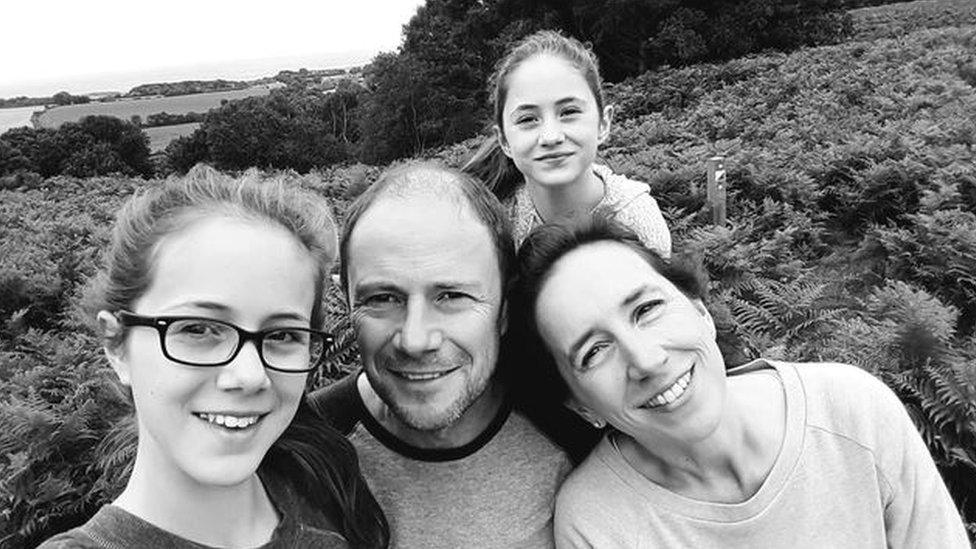
Mr Newby said his legal bid allows judges to test the strength of evidence and hold cross-examinations of expert witnesses
Mr Newby, 48, from Rutland, was diagnosed with MND in 2014 and is no longer able to walk, use his hands or lower arms.
He said he feels people "who are looking at hopeless futures and are really suffering pain and anguish" should be able to decide to die with loved ones and under medical supervision.
"I think this change could be made if we put the right safeguards in place," he said.
His legal bid would take a different approach to other UK cases - such as Noel Conway who lost his challenge last year.
Mr Newby wants the courts to look at the evidence from overseas where assisted dying is lawful, and have international witnesses to assisted dying cross-examined by English judges.
Sarah Wootton, of campaign group Dignity In Dying, said: "This could be a groundbreaking case to really look at the evidence on assisted dying, which demonstrates clearly from overseas that it gives patients choice, that it better protects vulnerable people, and it stops the current suffering at the end of life."
Gordon Macdonald, of anti-euthanasia organisation Care Not Killing, said allowing assisted dying would "put duties on other people and pressures on other people".
"We're concerned that any change in the law would put vulnerable people at risk of pressure to end their lives permanently," he said.

Follow BBC East Midlands on Facebook, external, Twitter, external, or Instagram, external. Send your story ideas to eastmidsnews@bbc.co.uk, external.
- Published11 September 2019
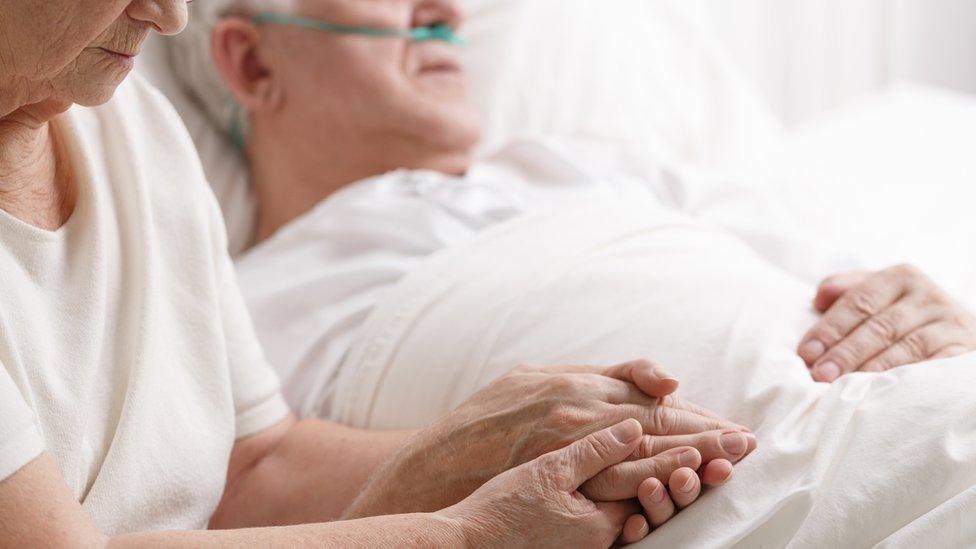
- Published6 September 2019
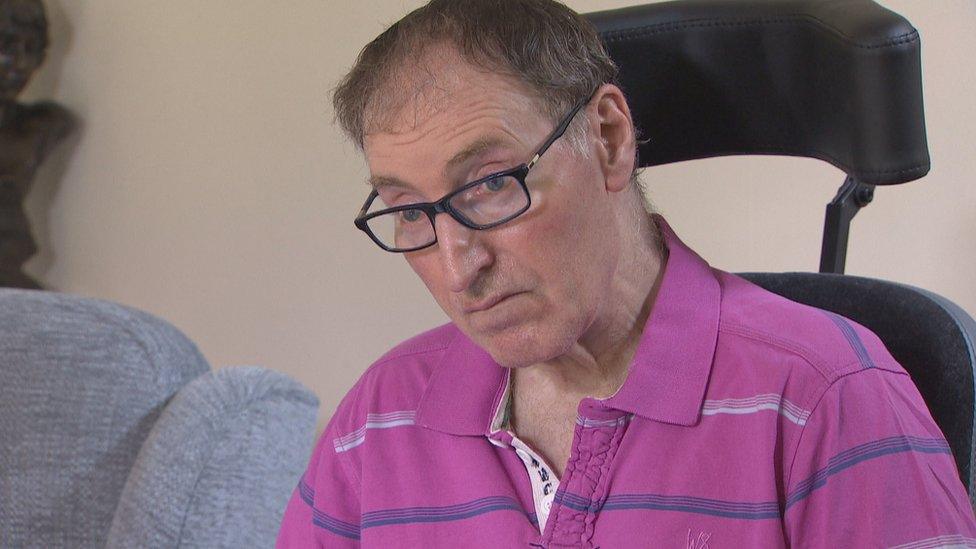
- Published4 July 2019
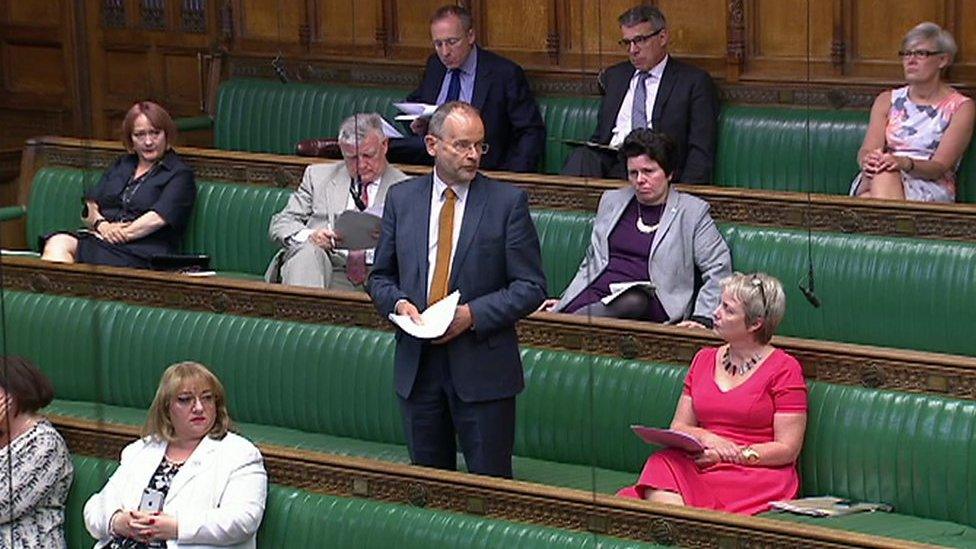
- Published6 October 2015
